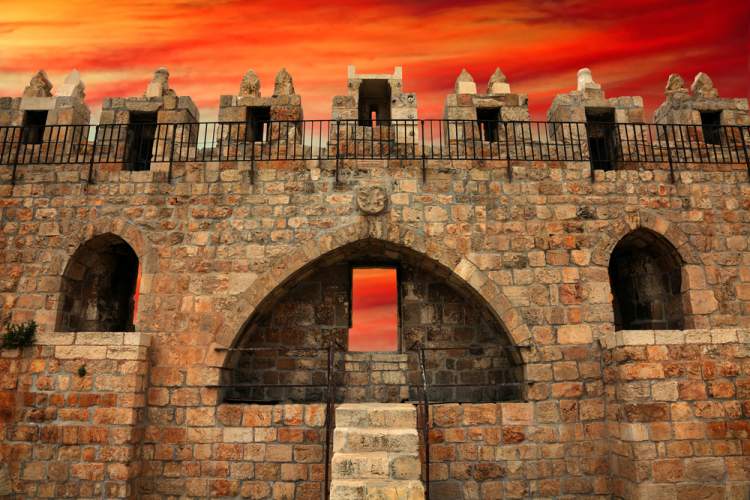Throughout history, the question of why G-d is not visible has perplexed the human race. Philosophers and laymen have addressed it in a number of different ways. Some say that G-d is by nature not a visible being; they contend that He is a spirit, thought or feeling. This answer is sorely deficient: G-d is, after all, the Creator of the world and all that is in it. If His creation, which is merely a product of His handiwork, is visible, then we should certainly be able to see the Originator of it all.
Others believe that we cannot see G-d because we aren’t holy. If we had holy eyes, they say, we would be able to see Him. In fact, even if we were to see a holy person— not to mention G-d—we might fail to recognize him or her as holy because we aren’t connoisseurs of holiness. This solution is slightly better than the first, but it remains a poor answer because the question is not about the visibility of holiness but the visibility of G-d. The problem remains: Why don’t we see Him, given that He is more real than anything He created?
Ultimately, the only good and proper answer is that we don’t see G-d because He chooses not to be seen. Logically speaking, because He is real, He should be visible to everyone. The reason we don’t see Him is that He acts to prevent us from doing so.
G-d’s ability to remain invisible—even though He is very much present—stands in tremendous contrast to the human condition. A human being has free choice and can opt to be seen—or not—by choosing his location. If he wishes to remain unseen, he stays in his room or hides in a cave; if he wants to be seen, he comes out into the public arena. Thus, he is the master of his presence. But a human being is not the master of his visibility. If he is present, then even if he very much wishes not to be seen, he has no power to become invisible. Likewise, if he is all alone and is frantic because he has fallen and needs help, no amount of desperation will make him visible to others. Humans are not truly independent beings. In the final analysis, our existence is only relative, influenced by and vulnerable to other people and elements in the world. If I am in your presence, then you become the master of my visibility because you can see me regardless of whether or not I wish to be visible.
By contrast, G-d is the master not only of His presence, but of His visibility. This is the logical explanation as to why G-d is very much present and yet not at all visible. But our not seeing Him doesn’t mean that He is absent; He is never absent. G-d is everywhere at all times, even though He chooses not to be seen.
Still, why would He choose to be everpresent and invisible? Some say He hides Himself to give us freedom of choice. They contend that the very fact of seeing Him would impel us to be good; we would be incapable of sinning. But history doesn’t prove this to be the case. The Jews stood face to face with G-d at Mount Sinai, where they both saw and heard G-d, yet 40 days later they sinned. Clearly, then, our freedom of choice is not compromised one iota by knowing that G-d is real—very real. We still have the option to serve Him or serve ourselves.
Ultimately, the reason why G-d chooses to conceal Himself is that G-d wants to be known rather than seen. By definition, the act of seeing satisfies our innate curiosity about the object or person at hand. The eye experiences pleasure from seeing that which is beautiful or interesting, and we tend not to bother exploring any deeper. Seeing people, in particular, doesn’t lead to an intimate understanding of them; on the contrary, it distracts us.
Essentially, by making Himself unseen, G-d is saying, “I want to have a relationship with My creations, but an intimate relationship. Because I want you to know Me, don’t look at Me.” And because we don’t see G-d, all these years later—ever since creation, and long after the giving of the Ten Commandments at Mount Sinai—we are still fascinated with Him. We have so many questions: What is He asking of us? How does He do A, B and C? Why does He let X, Y and Z happen? We are fascinated with G-d because we’re getting to know Him as a result of not seeing Him





